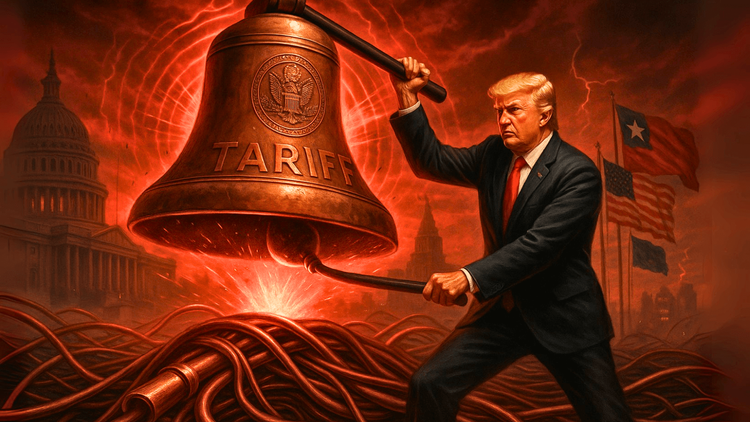Robinhood Expands Trading Options with Futures and Index Options
Robinhood’s expansion into futures trading and index options signals a shift toward more sophisticated investors, positioning itself to compete with traditional brokerage giants.

Robinhood Markets, a platform that revolutionized retail trading, is once again expanding its offerings by giving traders access to futures contracts and index options. This move marks a significant step for the company as it aims to cater to a more sophisticated class of investors. The new additions come with attractive pricing structures, designed to appeal to both novice and advanced traders, as Robinhood continues to challenge traditional brokerage firms.
Expanding Into Futures Trading
Robinhood’s entry into futures trading is a game-changer for its users. The brokerage will allow retail investors to trade futures contracts, including stock indexes, currencies, metals, and energy commodities like natural gas and crude oil. What’s more, cryptocurrency futures will also be available, further broadening the scope for retail traders who wish to diversify their portfolios. The pricing structure for these contracts is competitive: Robinhood Gold members will pay a 50-cent commission per contract, while regular customers will be charged 75 cents. This pricing strategy ensures that advanced traders can take advantage of these opportunities without breaking the bank, making futures trading more accessible to the average investor.
Index Options: Expanding Trading Horizons
Robinhood is also introducing index options, in partnership with CBOE Global Markets Inc. This expansion into options trading allows users to hedge risk, speculate on the market, or create diversified portfolios with ease. For Robinhood Gold members, index options are priced at 35 cents per contract, while other clients will be charged 50 cents per contract.
The addition of index options is a clear signal that Robinhood is targeting a more experienced demographic. These options allow traders to bet on the performance of entire market segments, which can be a valuable tool for those who follow broader market trends.
Catering to Sophisticated Investors
The introduction of futures and index options signals Robinhood’s strategy to cater to more advanced and sophisticated traders. While Robinhood became famous during the meme-stock craze for enabling younger, inexperienced investors to trade with ease, its focus is shifting toward a wider range of investment tools. These new offerings fill the gap for investors looking for advanced financial instruments typically found on platforms like Interactive Brokers or Charles Schwab.
Robinhood’s CEO Vlad Tenev commented on the significance of the move during an interview with Bloomberg Television, saying, "For a certain type of customer that is much more advanced and sophisticated, these products fill a need." This expansion is a direct response to the evolving demands of Robinhood’s user base, which now includes more experienced traders.
A Shift Away From Meme-Stock Mania
Robinhood's expansion into futures and index options highlights the company's departure from its image as a platform primarily for meme-stock traders. During the pandemic, millions of novice investors flocked to the app, lured by commission-free trading and the ease of buying popular stocks. Now, the company is strategically positioning itself to attract long-term, serious investors who demand access to a broader range of financial products.
This evolution demonstrates Robinhood’s commitment to growing beyond the initial boom of meme-stock trading and into a comprehensive brokerage service that can compete with the likes of established firms.
A New Trading Platform to Match the Offerings
In addition to expanding its trading options, Robinhood is rolling out a redesigned, browser-based trading platform. The new platform is built to cater to traders who need more advanced tools and customization. With features like the ability to display up to eight charts in a single window and dozens of settings, Robinhood is offering users more control over their trades. Chart types range from simple line graphs to more advanced candlestick charts, allowing traders to choose the best tool for their strategy.
This browser-based platform is reminiscent of those offered by legacy brokerages like Interactive Brokers and Charles Schwab, both of which have long catered to experienced traders. Robinhood’s new platform, with its customizable features and multiple charting options, is set to compete directly with these giants.
Bridging the Gap with Legacy Systems
Steve Quirk, Robinhood’s chief brokerage officer, explained the rationale behind the platform’s redesign: "Moving back and forth between apps or charting platforms can be cumbersome and time consuming. In looking at the landscape of trading tools and by talking with active traders, we realized there is frustration with legacy offerings."
This frustration with traditional trading platforms has created an opportunity for Robinhood to introduce a more streamlined and user-friendly system. By reducing the friction involved in trading and offering advanced features within a single platform, Robinhood is positioning itself as a serious contender in the world of online brokerage services.
Competing with Industry Heavyweights
The futures and index options markets have long been dominated by traditional brokers, but Robinhood’s latest move could disrupt the status quo. With its low-cost structure and user-friendly platform, the company is betting that it can attract traders who are looking for more than just simple stock trades.
Competing platforms like Fidelity Investments have also been revamping their offerings to cater to active traders. Earlier this month, Fidelity launched a redesigned desktop platform that offers many of the same charting and customization features that Robinhood is now introducing. This growing competition highlights the increasing demand for advanced tools among retail investors.
International Ambitions and Cryptocurrency Forays
In addition to its domestic expansion, Robinhood is eyeing international markets. The company has been ramping up its cryptocurrency offerings, which could be a major draw in global markets where digital assets are gaining traction. Robinhood’s move to offer cryptocurrency futures is just one step in this broader strategy.
These expansions are part of a larger vision that Robinhood has to grow its global presence and become a go-to platform for a diverse range of financial products. By tapping into both the traditional and cryptocurrency markets, the company is positioning itself to appeal to a wide spectrum of traders.
Conclusion
Robinhood’s introduction of futures trading and index options is a bold step toward transforming its platform into a more comprehensive brokerage service. By targeting advanced traders with competitive pricing and a redesigned platform, Robinhood is evolving beyond its meme-stock origins and into a serious competitor to traditional brokerage firms. As it continues to expand into new markets and offer more sophisticated products, Robinhood is poised to play a major role in the future of retail investing.






